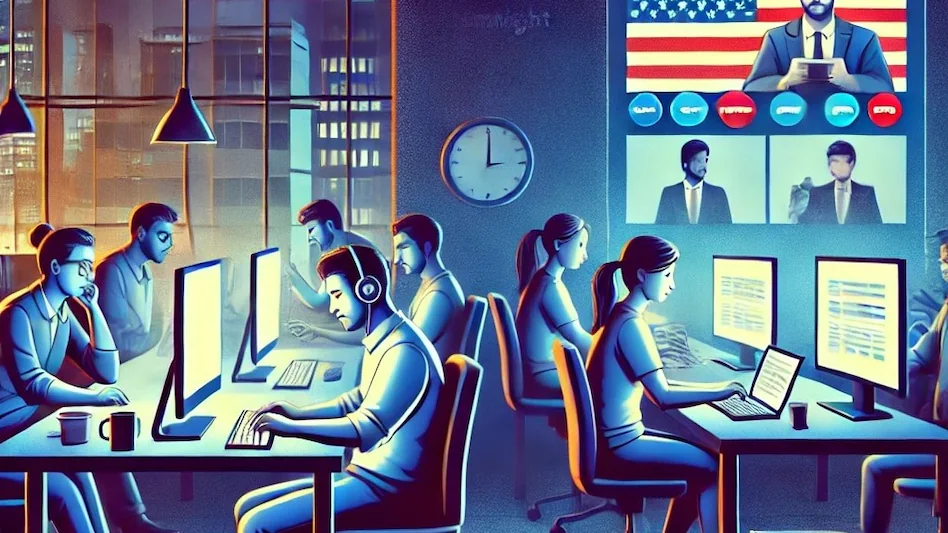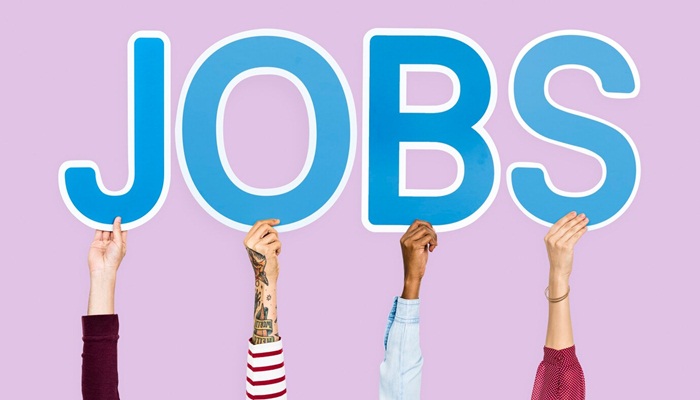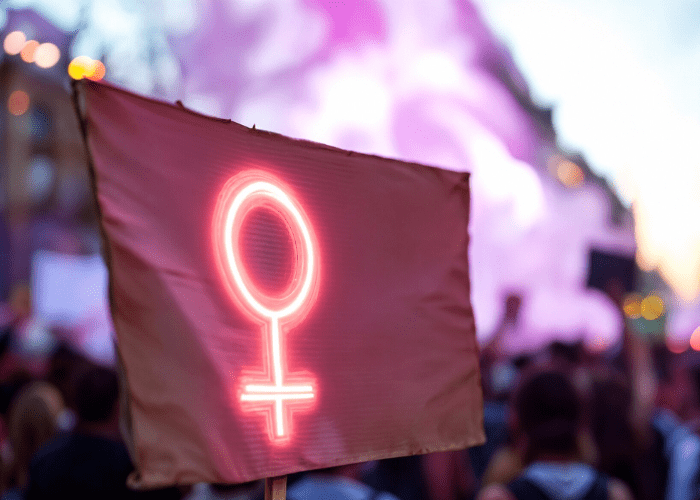It might be eight years since the MeToo movement but sexual harassment is still rife. People daily are subjected to catcalls while out walking and stats show that a whopping number of Brits admit to experiencing some form of sexual harassment in the workplace.
It’s also still happening in public, and in front of colleagues, as Celebrity Big Brother proved last night. On the series’ opening episode, host AJ Odudu was put in a very uncomfortable situation when actor Mickey Rourke, one of this year’s contestants, touched her and commented on her appearance.
“Stop looking at me! It’s time for you to get inside the house,” Odudu told the 72-year-old star, before he added: “No, I want to stay with you.”
The exchange prompted many viewers to voice their outrage at the incident on social media.
What is sexual harassment?
Harassment is legally defined under the Equality Act of 2010 as any unwanted conduct that violates someone’s dignity, which could be of a sexual nature or any intimidating, hostile, degrading, humiliating or offensive actions or language.
Back in October, the UK government announced a new duty to the act that requires employers to take “reasonable steps” to prevent sexual harassment of their employees, including new guidance on how to protect staff and keep them safe.
It comes as the Government Equalities Office reported that almost 72% of the UK population has experienced sexual harassment at work in their lifetime. Their report also found that 7.2% of men experienced some form of harassment and 2.7% reported sexual harassment, but overall they are less likely to report sexual harassment incidences, according to Male Victims of Sexual Assault.
In 2023, the TUC found three in five women (58%) have experienced sexual harassment, bullying or verbal abuse at work, with younger women significantly more likely to experience it. Slightly less than half (43%) of women reported at least three instances of harassment.
The survey also found that less than one in three women (30%) would report sexual or physical harassment to their employer, while only 50% would report verbal abuse. Many of the participants felt as though they wouldn’t be believed (39%) so wouldn’t report it and it could negatively impact their professional relationships and career progression, especially if this person was senior to them.
Hannah Strawbridge, solicitor, CEO and founder of Han Law tells Yahoo UK and her firm deals with these kind of cases daily. “I think one of the problems with it is quite often it’s pushed under the radar, so that where someone might have a complaint of sexual harassment, they’re quite often then offered a settlement agreement as part of their exit to leave with a confidentiality clause in there,” she says.
There was a small increase (7%) in tribunal cases for sexual harassment in the workplace in 2024, according to Irwin Mitchell, but it’s likely this figure is much higher. Strawbridge says the stats “often aren’t reflective of how many there are in reality” as the number of cases doesn’t include settlements.
Under the new legislation, employers now have a legal obligation to protect their staff, which can also include providing the right training for their management to ensure they know what is and isn’t appropriate.
“Employers have got a proactive duty to prevent sexual harassment in the workplace,” Strawbridge explains. “Before, they had to try and prevent it, but now they’ve basically got to carry out a risk assessment as they would with anything on the health and safety side, to to look at whether there might be a risk of sexual harassment happening.”
Neil Henderson CEO of Safeline adds: “Sexual harassment in the workplace has become normalised. Most employers/staff do not understand what constitutes sexual harassment or what action to take if it happens. Employees are reluctant to report for fear of not being taken seriously or how it might affect their relationship with colleagues or their career prospects. This gives people ‘permission’ to abuse their position of power.”
He continues: “Young people are most at risk, they tend to be more vulnerable/naive and do not understand how to deal with sexual harassment in the workplace due to inadequate induction or training.”
Prevention could be as small as educating staff to cancel corporate away days or holidays that may involve alcohol or drugs and increase the risk of harassment occurring, as an employer can now be liable for creating an unsafe environment.
“We’re also not always talking about something as extreme as physical assault or rape,” Strawbridge continues, “Harassment in terms of the UK employment law definition can be a statement. It can be anything offensive, which upsets that person or degrades them such as commenting on someone’s body or their outfit.”
What to do if you’re being sexually harassed at work
If you are being sexually harassed at work, Strawbridge’s advice is to “first, try and deal with it by talking to your manager, if you don’t feel you can talk to the person who has actually said or done that thing to them.”
If that doesn’t work, she advises you raise a formal grievance via their employer’s grievance policy. “Most employers should have a grievance policy within a book of HR policies,” she adds. “Raise that grievance to explain what’s happened, why, when, where and ask them to investigate that. Then your employer should hold a meeting to discuss this with you and write out an outcome at the end of the meeting.”
If you aren’t happy with how the outcome or how this complaint has been handled, then it’s time to look into taking your claim to the Employment Tribunals Commission. The Citizen’s Advice Bureau can offer guidance.
Strawbridge stresses alongside new legislation and employers being more proactive in prioritising their employees safety, prevention of sexual harassment in the future also lies in educating the younger generation about what’s appropriate and what’s not both in and out of the workplace.
“I think it’s really scary because on the one hand, I call myself a feminist, and things have improved for us, but there’s also a nasty undercurrent of stuff happening at the moment from certain personalities on social media,” Strawbridge says. “Their impact feels more of a cultural, societal thing, than anything specific to certain employers.”
In cases of rape or physical sexual assault, it’s important to take the grievances outside of the workplace and report it to the police and use support lines such as Rape Crisis.
Source – https://uk.style.yahoo.com/sexual-harassment-work-report-what-to-do-162400685.html?






















